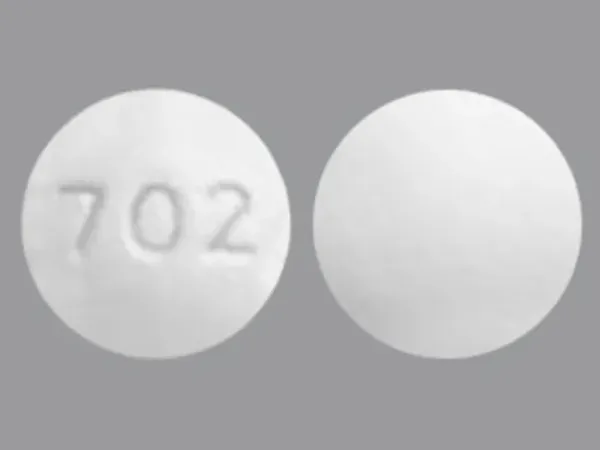Perphenazine Dosage
Medically reviewed by Drugs.com. Last updated on Jul 24, 2025.
Applies to the following strengths: 5 mg/mL; 16 mg; 8 mg; 16 mg/5 mL; 2 mg; 4 mg
Usual Adult Dose for:
Usual Pediatric Dose for:
Additional dosage information:
Usual Adult Dose for Psychosis
Moderately disturbed, nonhospitalized patients:
- Recommended dose: 4 to 8 mg orally 3 times a day, with a dose reduction to the minimum effective dose as soon as possible
- Maximum dose: 24 mg/day
Hospitalized patients:
- Recommended dose: 8 to 16 mg orally 2 to 4 times a day
- Maximum dose: 64 mg/day
Comment:
- Nonhospitalized patients should be limited to a daily dose of 24 mg; maximum doses of 64 mg should be used in hospitalized patients.
Use: Treatment of schizophrenia
Usual Adult Dose for Nausea/Vomiting
Recommended dose: 8 to 16 mg orally, in divided doses
Maximum dose: 24 mg/day, in divided doses
Comment:
- The dose should be reduced as early as possible.
Use: Severe nausea and vomiting
Usual Pediatric Dose for Psychosis
12 years and older:
Moderately disturbed, nonhospitalized patients:
- Recommended dose: 4 to 8 mg orally 3 times a day, with a dose reduction to the minimum effective dose as soon as possible
- Maximum dose: 24 mg/day
Hospitalized patients:
- Recommended dose: 8 to 16 mg orally 2 to 4 times a day
- Maximum dose: 64 mg/day
Comments:
- Nonhospitalized patients should be limited to a daily dose of 24 mg; maximum doses of 64 mg should be used in hospitalized patients.
Use: Treatment of schizophrenia
Usual Pediatric Dose for Nausea/Vomiting
12 years and older:
- Recommended dose: 8 to 16 mg orally, in divided doses
- Maximum dose: 24 mg/day, in divided doses
Comment:
- The dose should be reduced as early as possible.
Use: Severe nausea and vomiting
Renal Dose Adjustments
Use with caution.
Liver Dose Adjustments
Patients with liver damage: Contraindicated
Dose Adjustments
Abnormalities in hepatic tests, BUN, and/or signs/symptoms of blood dyscrasias:
- Discontinue treatment and monitor appropriately.
Elderly patients: Lower initial doses are recommended. Clinical benefit may require lower doses for longer periods of time.
Precautions
US BOXED WARNING:
- INCREASED MORTALITY IN ELDERLY PATIENTS WITH DEMENTIA-RELATED PSYCHOSIS: This drug has an increased risk of mortality when administered to elderly patients with dementia-related psychosis. Elderly patients with dementia-related psychosis treated with antipsychotic drugs have an increased risk of death. This drug is not approved for use in patients with dementia-related psychosis.
Safety and efficacy have not been established in patients younger than 12 years.
Consult WARNINGS section for additional precautions.
Dialysis
Data not available
Other Comments
Administration advice:
- For some patients, this drug may be given before bed.
Storage requirements:
- See manufacturer product information.
General:
- All patients on prolonged treatment should be reassessed regularly.
- Patients receiving long-term treatment may have a higher risk of developing liver damage, corneal/lenticular deposits, and/or irreversible dyskinesia.
- Treatment has not been effective for the management of behavioral complications in patients with mental impairments.
Monitoring:
- ECG monitoring for patients at risk of QT prolongation
- Periodic WBC with differential tests, especially in patients with signs/symptoms of infection/sore throat, at increased risk of blood dyscrasias, and/or with a history of low WBCs or drug-induced neutropenia/leukopenia
- Periodic liver function tests
- Blood pressure, especially in patients with impaired cardiovascular systems
- Eye examinations, especially in patients on prolonged treatment
- Heart rate, especially in patients with arrhythmias and/or taking QT prolonging drugs concurrently
- Periodic renal function tests, especially in patients on prolonged treatment
Patient advice:
- Patients should be warned to avoid abrupt discontinuation of this drug.
- Patients should be instructed to immediately report any signs/symptoms of neutropenia/leukopenia, neuroleptic malignant syndrome, or tardive dyskinesia.
- Inform patients that this drug may cause or impair mental/physical abilities, and they should avoid driving or operating machinery until the full effects of the drug are seen.
- Patients should be advised to speak to a healthcare provider if they are pregnant, intend to become pregnant, or are breastfeeding.
Frequently asked questions
More about perphenazine
- Check interactions
- Compare alternatives
- Pricing & coupons
- Reviews (36)
- Drug images
- Side effects
- During pregnancy
- Drug class: phenothiazine antiemetics
- Breastfeeding
- En español
Patient resources
Other brands
Professional resources
Related treatment guides
See also:
Further information
Always consult your healthcare provider to ensure the information displayed on this page applies to your personal circumstances.


